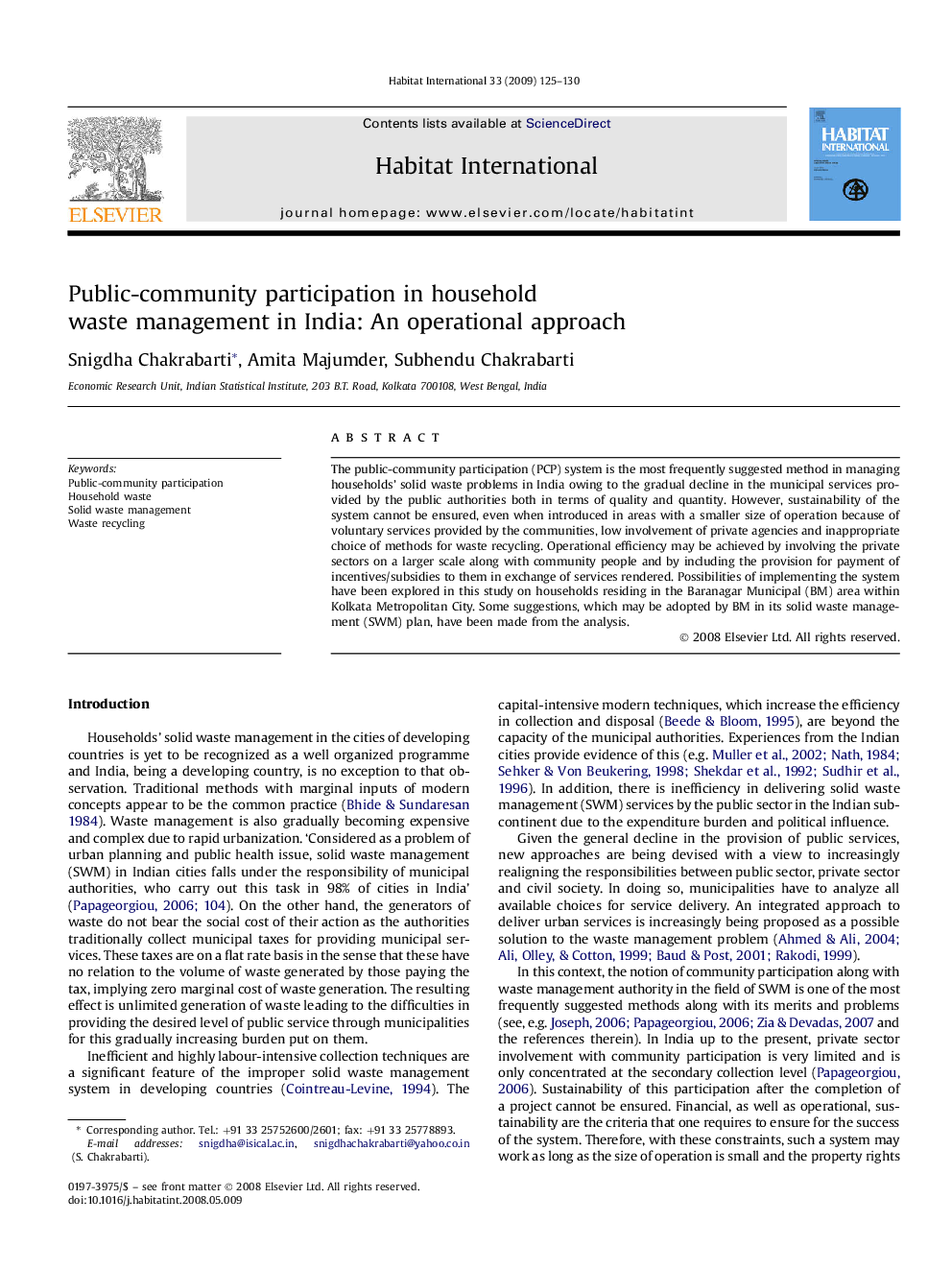| Article ID | Journal | Published Year | Pages | File Type |
|---|---|---|---|---|
| 1048487 | Habitat International | 2009 | 6 Pages |
The public-community participation (PCP) system is the most frequently suggested method in managing households' solid waste problems in India owing to the gradual decline in the municipal services provided by the public authorities both in terms of quality and quantity. However, sustainability of the system cannot be ensured, even when introduced in areas with a smaller size of operation because of voluntary services provided by the communities, low involvement of private agencies and inappropriate choice of methods for waste recycling. Operational efficiency may be achieved by involving the private sectors on a larger scale along with community people and by including the provision for payment of incentives/subsidies to them in exchange of services rendered. Possibilities of implementing the system have been explored in this study on households residing in the Baranagar Municipal (BM) area within Kolkata Metropolitan City. Some suggestions, which may be adopted by BM in its solid waste management (SWM) plan, have been made from the analysis.
